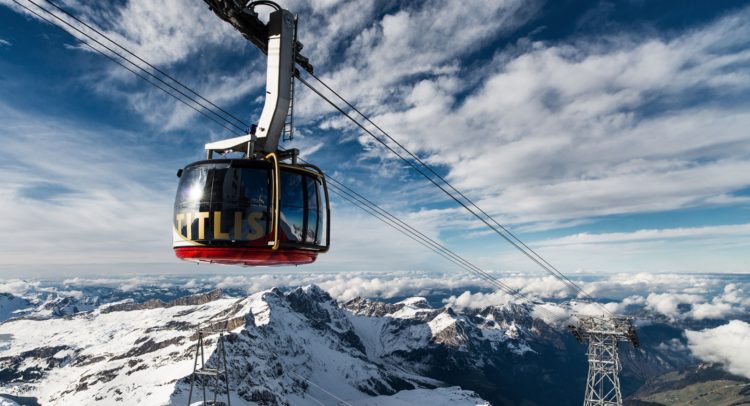Once happens to be a prime example of the strong franc’s impact on the economy, Switzerland’s tourism industry is recovering at a great pace now. Overcoming a financial crisis the tourism industry of the country is grabbing its feet once again with a better exchange rate, good snowfall and resilient global demand for foreign travel.
The heavy traffic out of Zurich on the first day of school break narrates the account of local interest, while the operators of the Alpine cable cars likewise state, business has been dynamic. Hotels and bars are also looking at their best period since the financial crisis.
As said by Klaus Abberger at the KOF Swiss Economic Institute, “The catering sector has left the worst behind it.” For evidence of better times and stronger demand, there’s also enhanced pricing power, with statistics office data showing that hotel rates have arised.
It’s a long ways from 2015, when the franc functioned equality against the euro, traveling to pricey Switzerland got even more expensive .
Though its haven currency weakened due to investor risk aversion, trade disputes to Brexit and a US shutdown, yet it is holding moderately steady.
Tourism is a key source of Switzerland’s income, although the industry had been suffering from the adverse effect of global warming, this year’s a decent amount of snow fall has made Swiss winter sport resorts “snow-sure“ to favourably carry-out winter sports for the tourists.
So Andreas Zuellig, head of the Hotel Schweizerhof in Lenzerheide, said, “This year’s hotel bookings indicate that it’ll be a very good winter.” The property, located in the east of the country, is a popular destination for skiers especially. For the increase in the business, Zuellig is thankful to the thick snowfall, the exchange rate and a positive economic environment.
The tourism industry of the country is now witnessing stronger numbers every where. Fir instance, the cable car operators are gaining revenue which is more than eight per cent above its five-year average. Likewise the ski resort Titlis Bergbahnen in central Switzerland, has itself broken its 2018’s record business.
Similarly, the Rigi Bahnen also set a record last year by featuring a historical cogwheel mountain railway by Lake Lucerne dating back to 1871. Nonetheless, Zermatt hotel bookings were at an all-time high.
Earlier tourism in Switzerland was a summer pursuit and in winter, heavy snow hindered most travelling activities. But the Britishers’ high interest in winter sport activities here, at the end of the 19th century, changed the scenario and its winter holidays are brought into fashion. Therefore today “low season” here means just a few short weeks in spring and autumn.

